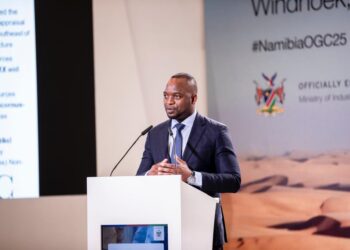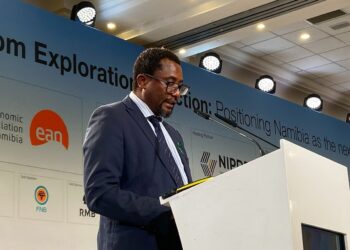
The African Development Bank (AfDB) has called on Namibia to strengthen private sector participation and accelerate economic diversification to unlock long-term, sustainable growth.
In its African Economic Outlook for 2025, the bank said Namibia needs to move beyond its dependence on volatile commodity markets and Southern African Customs Union (SACU) revenues, highlighting value addition in mineral exports, increased infrastructure investment and improved business conditions as critical priorities.
“To address these challenges, Namibia must focus on value addition in mineral exports to increase revenue and foreign earnings,†the AfDB stated.
“Infrastructure investment should be scaled up through higher budget allocations, public-private partnerships, and public enterprise optimisation to free up resources and expand private involvement in key industries.â€
The call comes amid signs of economic slowdown.
Namibia’s economy grew by 3.7% in 2024, down from 4.4% the previous year.
According to AfDB, the decline was mainly attributed to weak global demand for diamonds and drought conditions that affected agricultural output.
Despite the overall slowdown the bank said, sectors such as electricity, water, wholesale, and financial services posted solid growth.
Inflation according to AfDB, eased to 4.2% from 5.9% in 2023, largely due to lower fuel prices.
The Namibian dollar appreciated against the US dollar, buoyed by investor confidence in the South African rand, to which it is pegged.
However, macroeconomic pressures are mounting the AfDB said.
According to the report, the current account deficit widened to 16.5% of GDP in 2024, up from 14.6% the previous year, mainly due to reduced inflows and rising imports related to oil and gas exploration. Meanwhile, the fiscal deficit widened slightly to 2.7% of GDP as a result of increased public spending.
Private sector credit growth remained weak in the wake of the pandemic, rising only modestly to 4% by the end of 2024. Nonetheless, there were signs of financial stability, with non-performing loans declining to 5.6% and the capital adequacy ratio improving to 15%.
The AfDB also flagged persistent social challenges. Namibia’s unemployment rate stood at 36.4% in 2024, with youth unemployment at 44.4%. Nearly 27% of the population lives in poverty, and the Gini coefficient remains high at 0.61, pointing to deep income inequality. The country’s Human Development Index was 0.610 in 2022, reflecting medium human development.
Looking ahead, the AfDB projects GDP growth of 3.8% in 2025 and 3.9% in 2026, supported by increased investment in mining, infrastructure and an anticipated recovery in agriculture. But it warned that global economic uncertainties and climate-related risks could undermine progress.
“Higher tariffs on Namibia’s exports are expected to dampen demand for minerals, stock exchange rate volatility, increase inflation, and constrain logistics over the medium-term,†the report said. “Domestically, water supply disruptions and climate change pose additional risks.â€
The report also highlighted the country’s education challenges. Despite spending over 27% of its national budget on education, youth unemployment remains high and a widening skills mismatch continues to hamper job creation.
The AfDB called for more efficient education spending and a realignment of curricula with labour market needs. It also recommended a comprehensive human capital diagnostic to address structural barriers to employment.
“With bold reforms and strategic investments, the country could lay the foundation for inclusive and resilient growth,†the report concluded.











